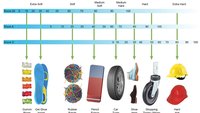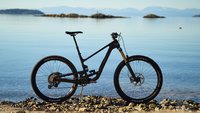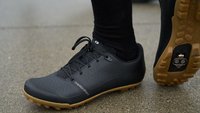Posted by: RAHrider
You seem to have a pretty low opinion of the care provided to patients by physicians in general. I really didn't want to come on here and defend my personal practice but I will say that what you describe in no way resembles my own practice. Every person I treat for a heart attack I personally follow up, prescribe exercise, diet and smoking cessation (if needed) in addition to drugs that aid cardiac healing and prevent future heart attacks. My office waiting room has healthy cookbooks for patients to peruse. I even have a library that patients can borrow books from on meditation, stress reduction and better ways to deal with stress and anxiety (often the reason they smoke).
Have I found ebikes particularly effective for cardiac rehabilitation after a myocardial infarction (a heart attack), not really. Do some of my patients enjoy riding them - absolutely! Do I consider what they do on their ebike exercise - not usually. Most of what they do on an ebike I classify as movement, which can be good for joints, mobility and mental health but really isn't any more exercise than a trip to Costco.
Again, I'm happy people like riding e bikes. I have loved bikes for decades. I ride one every day (just about). For me attaching a motor to a bike only takes away from my enjoyment. Cutting my commute by 15 minutes only means 15 less minutes riding my bike. I think the idea of a motorized vehicle with the throttle in the pedals is kind of a silly invention, but if it does it for some, good on them. I'm certainly not going to sit around and praise ebikes for getting my patients out doing the bare minimum activity. After they tell me about their great bike ride, I ask them how hard they were breathing and then tell them that it's great they are getting outside and breathing fresh air but then remind them that they need to dedicate some time to getting their heart rate up and working up a sweat.
If people would like to rant about their shitty health care, go ahead. I'll read the whole thing and learn from your experiences. It's hard to know where our system let's people down without listening to their bad experiences.
Do I have a pretty low opinion of the care provided to patients by physicians in general? No, definitely not. Do I think that the areas of physical activity and nutrition could be better integrated into the general care that people receive? Absolutely. Again, please don't take my comments as a direct attack on your practice as I don't know how you practice. In fact, what you describe sounds very close to my vision of what health care should be, much more proactive than reactive. And in that regard I'm talking the entire health care system here where there should be far more resources put into preventative care that would end up saving us huge dollars on reactive care. In some ways I could draw an analogy with the Four Pillars approach in dealing with substance use.
Your comments about how you view ebikes is what interests me and what I have questions about. For example, I think you hit on a critically important factor with the statement that some of your patients enjoy riding ebikes but seem to miss why the enjoyment factor is so important. The benefit of any physical activity is directly limited to how consistently an individual participates in it. The best physical activity routine in the world provides no benefit to an individual if they don't do it. To back that up there is research that shows the importance of enjoyment in physical activity or exercise routines in regards to participation rates, both over the short and long terms. I've had 25 years working with diverse populations from athletes to the physically disabled and have witnessed myself how the enjoyment factor can have significant affects on participation rates. So if people like riding their ebikes but aren't keen on their regular bikes then over the long term the ebikes will provide more benefit simply due to the fact that people are more likely to continue using them. Now granted, there is a caveat when it comes to ebikes that amount of assistance people use can significantly affect the benefits, but that is tempered against the outcomes of some activity vs no activity.
You mention you don't consider what some patients do on their ebikes as not exercise, I'm curious as to why not and how you're measuring that? Do you have HR data from their e-cycling sessions to compare against other forms of activity? And most importantly, are you considering that the enjoyment factor can affect people's perceptions of their effort level? I'm purposely bolding that sentence due to it's importance as there is a strong correlation between higher perceived levels of enjoyment and lower perceived levels of exertion. To wit, there is actual research on this very topic by Sperlich et al with respect to ebikes no less, where the researchers found that subjects on ebikes had higher enjoyment levels and lower perceptions of exertion compared to regular bikes.
Quote: Sperlich et al.
"The present investigation on the biomechanical, cardiorespiratory, and metabolic responses, as well as perceived effort and enjoyment indicates that, in comparison with conventional cycling, e-biking in varying terrain involves (1) lower muscle activation, (2) reduced cardiorespiratory and metabolic effort, and (3) less perceived exertion with more enjoyment. According to present standards, the self-selected intensity of electrically assisted cycling was sufficient to meet present guidelines for moderate-intensity physical activity. Thus, regular use of the e-bike could well facilitate and promote more frequent and/or prolonged exercise by sedentary women."
While the exertion levels on the pedal bikes were higher, the important consideration is that more fun equals more likelihood of participating in an activity. Another study by Smith-Ryan (Enjoyment of high-intensity interval training in an overweight/obese cohort: a short report) found over the course of the study that perception of enjoyment increased and perception of effort decreased even though the actual intensities increased over time. And finally, in a study by Hagberg et al. they found that
Quote: Hagberg et al.
"The present study shows that enjoyment of exercise is associated with exercise level, and that enjoyment of exercise can be increased in the long term by a health-care based intervention. Making exercise more enjoyable can contribute to achieving this long-term adherence to physical exercise."
In this let's not forget that exercise can be qualified as pretty much anything that elevates heart rate above sedentary levels and it doesn't have to be strenuous to provide benefit. The thing I find telling, and it relates to your previous post where I first raised my objections, is in your last paragraph where you say that attaching a motor takes away from your enjoyment. That is totally fine and you don't have to like it, but it also shouldn't affect your perception of how an ebike can beneficial to others.
And just to reiterate I don't think we have a shitty health care system. I think we have a good health care system that operates quite well considering the constraints it's under such as funding and staffing limitations. I think our biggest fault though lies in it being a system to fix things when they go wrong as opposed to being a mechanism to help prevent things from going wrong in the first place. In my perfect world health care is always available for emergent and urgent care situations from traffic/workplace accidents to genetic conditions such as arthritis etc because it's not loaded down dealing with illness related to poor lifestyle habits such as lack of exercise, poor nutrition, substance use, smoking, etc.
Refs:
Hagberg, L.A., Lindahl, B., Nyberg, L. and Hellénius, M.-L. (2009), Importance of enjoyment when promoting physical exercise. Scandinavian Journal of Medicine & Science in Sports, 19: 740-747. DOI 10.1111/j.1600-0838.2008.00844.x
Smith-Ryan, A.E. (2017), Enjoyment of high-intensity interval training in an overweight/obese cohort: a short report. Clin Physiol Funct Imaging, 37: 89-93. DOI 10.1111/cpf.12262
Sperlich, B., Zinner, C., Hebert-Losier, K., Born, D-P., Holmberg, H-C. (2012). Biomechanical, cardiorespiratory, metabolic and perceived responses to electrically assisted cycling. European Journal of Applied Physiology, 112(12), 4015–4025. DOI 10.1007/s00421-012-2382-0







